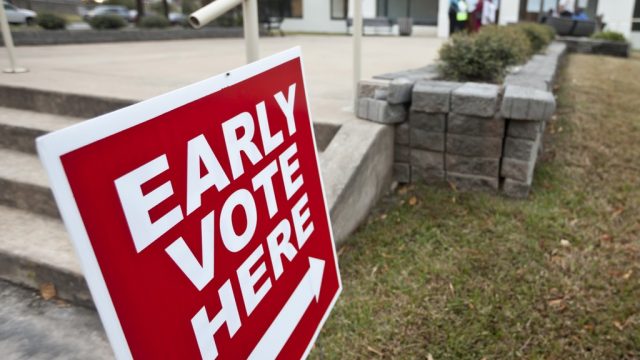James Kerian: The Right Must Adapt To Early Voting

Not long ago we had a campaign season that ended with an election day. Now, like it or not, we have a campaign season that leads into (and becomes intermingled with) an election season. Absentee/early voting was once an exceptional privilege and voters would have to give a reason to be allowed this privilege. Now early/absentee ballots make up nearly twenty-five percent of the ballots cast across the country and over forty percent of those cast here in North Dakota.
Elections are a contest and when the rules of a contest change the contestants who are slowest to adapt are at a significant disadvantage. It used to be illegal to campaign too close to polling places but now a voter may very well hear a candidate’s radio/television ad while they are voting. Many voters this election season will probably receive direct mail from a candidate with the same daily mail delivery that will bring their ballot.
>The most significant change, however, is the way that early voting allows candidates and their party to influence turnout. It is cliche now to point out that elections are decided by turnout but that doesn’t make it any less true. Only about half of eligible voters actually vote in America and North Dakota is only a couple percentage points ahead of the average. Victory, therefore, doesn’t necessarily go to the candidate/party with the most supporters. It goes to the candidate/party with the most supporters who actually bother to vote.
For many years political parties and individual candidates have organized election day phone banks to call voters they have identified as sympathetic to their cause and to remind/motivate them to vote. Individual ideologues and party loyalists would remind/hound their right-thinking friends and family to go the polls. These are still an important part of a campaign’s success but early/absentee voting has opened up a vast array of new opportunities to drive turnout among pre-identified voters.
If you know a like-minded individual you can ask them if they have filled out the form to request a mail-in ballot. You can print out and hand them a copy of the form. If you have a list of likely supporters you can mail a form to each one of them. You can call them every single day for weeks on end and ask them if they filled out the form. When the ballots are mailed (starting September 25th here in North Dakota) you can call and ask if they have filled out their ballot. In fact, you can call them every day for the next five and a half weeks and ask if they have filled out their ballot and mailed it in.
In short, you can now ram voting down the throat of your friends, neighbors, or pre-identified list of likely supporters. This obviously comes with a risk of backlash but done carefully it can be an incredibly powerful campaign tool. With the website of the ND Secretary of State’s office you can even track whether or not your targeted voters are being honest with you if they say they have mailed in their ballot. Voters will complain about these tactics just as voters complain about negative campaign ads but these tactics (like negative campaign ads) workand the party/candidate that refuses to use them will be at a tremendous disadvantage.
There are all sorts of objections to mail-in ballots and early/absentee voting. Many are concerned about the increased potential for voter fraud. Some of us believe that voting should take a little bit of effort and maybe we have made it too easy. A lot of North Dakotans just feel nostalgic for the days when an election was more of a community event.
Those are all great things to take into account when you’re considering an expansion/contraction of early/absentee voting but they are completely irrelevant once the rules have been set for a particular election. In 2012 Democrats used the opportunities presented by early/absentee voting (and I’m talking about the legal ones here) to their tremendous advantage in Iowa, Nevada, Florida, North Carolina and many other states. This year they expect to do the same in at least ten key senate races.
If you want to see the candidates you support win then start encouraging your friends and neighbors to vote now, don’t wait until the last day of election season just because we still call that election day. In a contest we must let our actions be guided by what the rules are, not what we would wish them to be.




